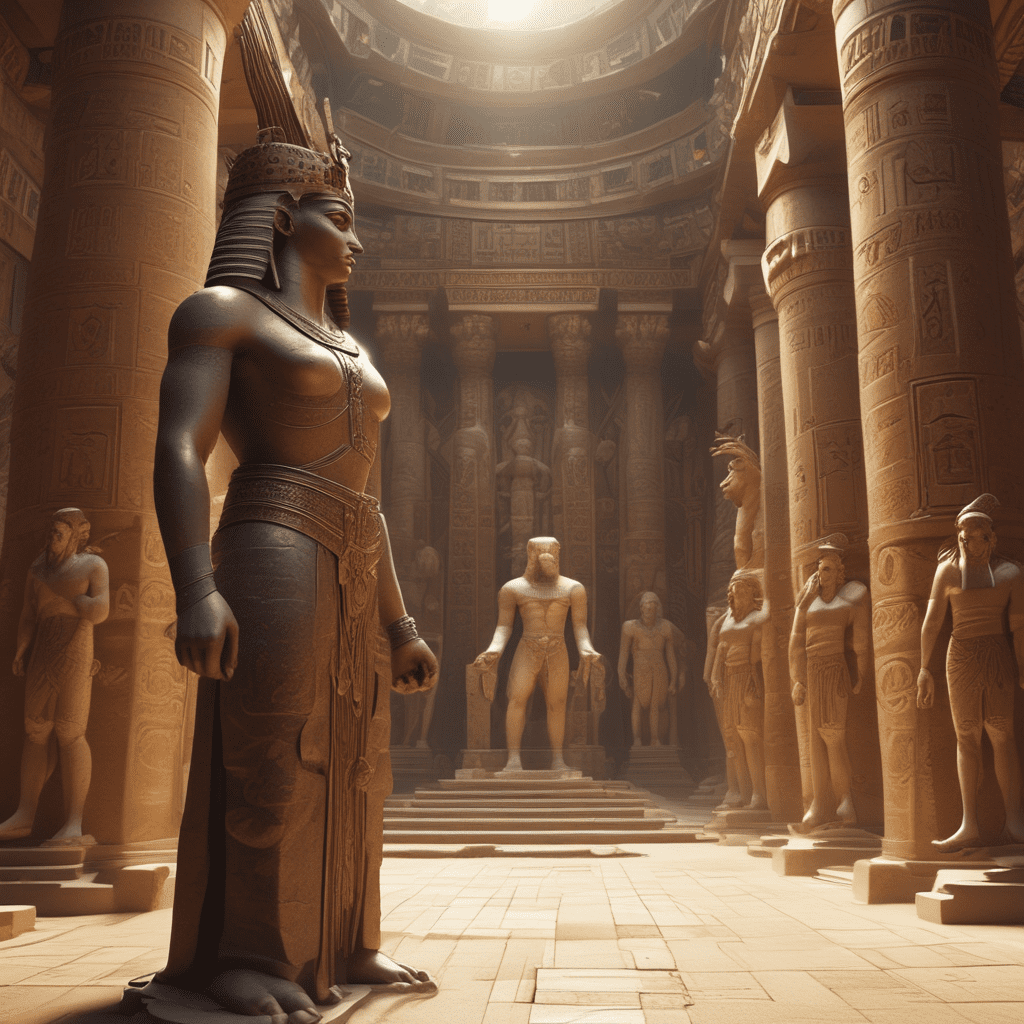The Myth of the God Atum in Egyptian Mythology
In Egyptian mythology, Atum is among the most significant deities representing the concept of creation and the origin of life. Let’s delve into the myth of the god Atum and explore the fascinating aspects of this ancient Egyptian belief.
Who is Atum in Egyptian Mythology?
Atum is often considered one of the first gods in the Egyptian pantheon. He is seen as the creator god, responsible for bringing the world into existence through his own power and will. With his association with the sun, Atum is sometimes depicted as a solar deity, embodying the transformative powers of light and life.
Creation Myth of Atum
According to Egyptian mythology, Atum emerged from the waters of chaos, where he existed in a state of self-creation. It is believed that Atum formed himself by speaking existence into being. He is often depicted as a man with a double crown, symbolizing his rule over Upper and Lower Egypt.
Atum subsequently created two deities, Shu (representing air) and Tefnut (representing moisture), who then gave birth to Geb (earth) and Nut (sky), completing the divine family and setting the stage for the creation of the world as the ancient Egyptians understood it.
Significance of Atum in Egyptian Beliefs
Atum’s role in Egyptian mythology as the creator deity highlights the cultural emphasis on the cyclical nature of existence, as well as the divine origin of life and order. His association with the sun underscores the importance of light and warmth in sustaining life, both literally and symbolically.
Furthermore, Atum’s creative act of self-generation symbolizes the power of the divine to bring forth life and maintain cosmic balance, reflecting ancient Egyptian beliefs in the continuity of existence and the interconnection of all living beings.
Overall, the myth of the god Atum in Egyptian mythology serves as a rich tapestry of symbolism and allegory, offering insights into ancient beliefs about creation, divinity, and the natural world.
FAQs about the Myth of the God Atum in Egyptian Mythology
What is the significance of Atum in Egyptian mythology?
Atum is a primordial deity in Egyptian mythology, considered the creator of the world. Associated with the setting sun, Atum represented completion, unity, and the cycle of life and death.
How was Atum depicted in ancient Egypt?
Atum was often depicted as a man wearing the dual crown of Upper and Lower Egypt, symbolizing his role as a unifier. Sometimes shown as a snake-headed figure, Atum represented the power of transformation and regeneration.
What role did Atum play in the creation myth?
Atum was believed to have created the world by self-generating from the primordial waters of chaos. Through his divine will and speech, Atum brought forth the universe and all living beings, establishing order and harmony.
Was Atum worshipped in ancient Egypt?
Atum was a prominent deity worshipped throughout ancient Egypt, particularly in the city of Heliopolis. Followers revered Atum for his creative powers, his association with the sun, and his role in sustaining the cosmos.
How does Atum’s mythology influence Egyptian beliefs and rituals?
The myth of Atum underscored the importance of creation, renewal, and divine authority in Egyptian culture. Rituals honoring




